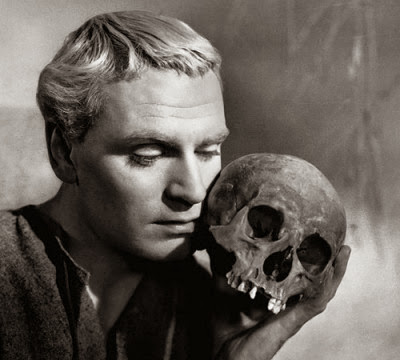As I mentioned in my last post, "Memorizing Dialogue for Work On-Camera", I
have very different way of memorizing long speeches or monologues and it's faster and easier than you probably thought possible. You can do it in just 3 steps (although you have to repeat steps 2 and 3 a few times).
 I'm going to share this technique with you completely for free (as always), so, IF you like it, please consider sharing this blog with others and following me on Twitter so you get notified when I post future tips-for-actors.
I'm going to share this technique with you completely for free (as always), so, IF you like it, please consider sharing this blog with others and following me on Twitter so you get notified when I post future tips-for-actors.
 I'm going to share this technique with you completely for free (as always), so, IF you like it, please consider sharing this blog with others and following me on Twitter so you get notified when I post future tips-for-actors.
I'm going to share this technique with you completely for free (as always), so, IF you like it, please consider sharing this blog with others and following me on Twitter so you get notified when I post future tips-for-actors. When you are ready to begin memorizing a monologue, the first time you read it is of paramount importance. It is the last time you will ever read it as ‘the audience". After this first read you will always read your script as an actor.
Step 1
So this first time, read it for ‘story’. Don't read it out loud and don't read it out loud in your head...
...
...
...
That means, don't try to "act it" in your head while you read it. Understand? Just pay attention to what it's about. Pay special attention to how it begins and ends – not the words, just what happens. After you’ve read it once – AND ONLY ONCE – immediately turn the script over and put it down. Try to understand what the character is feeling. What's the primary emotion? What does your character want? What’s getting in their way?
Step 2
Now, without looking at the text, act the monologue out in your own words – FULL OUT. It can last for 20 seconds or 5 minutes. It doesn't matter. You remember how the story began and ended so just get from point A to point B. The only goal in this step is to feel a little of what the character feels. Everyone tends to forget this. If I asked you to grade yourself on how you did for Step 2 you would probably give yourself a "C" or a "D" even if you felt the emotion. You'd forget that felling the emotion is the ONLY GOAL IN STEP 2!! So the bad grade would be based on how you did on getting the words right. After reading it only once! If you didn't feel any of the emotion then, without looking at the text, repeat step 2 otherwise, go on to Step 3. (Hint: you can always repeat the even-numbered steps but never the odd-numbered ones!)
Step 3
Next, pick up the script and begin to read out loud. Start speaking as soon as your eyes hit the page. Try to bring in some of the emotion that you just discovered in step 2. Look only at the page – No eye contact! When you finish reading turn the script over right away – Don’t look back at the top of the page!
Then, you simply alternate, four or five times, between saying it in your own words and reading the lines out loud, letter perfect, with emotion. So Step 4 is to repeat Step 2. Step 5 is to repeat Step 3, etc. Each time you say it in your own words, more of the emotion will work it’s way in, and each time you read it out loud, you'll learn more of the scripted words. Alternate it four or five times and you can learn even a very long monologue - letter perfect - in just a few minutes.
"Second-Time-Syndrome"
One trap I want to make you aware of, is called "Second-Time-Syndrome". I must credit longtime SRS actor Allen Gumapac for naming this. "Second-Time-Syndrome" refers to what would be Step 4 - the second time you do the monologue without looking at the script. The
interesting thing is that, for most people, the second time you do it in your
own words is the hardest. Not the first time. Now think about that for a minute.
Shouldn’t the first time be the hardest? After all, you’ve only read it once. By the second time you've read it two times. But I find that actors have much more
trouble getting through it the second time – after reading it again - rather
than the first. Why do you suppose that is?
The
reason is that you tend to focus more on the lines the second time. The first
time you know you’ve only read it once and there is no way you could hope to
get the words right. So you let go of the words and just tell (and feel) the
story. But for some reason after you’ve read it a second time (and noticed
which words you got right and wrong) you think you should be able to get the
words more accurately and that’s exactly what throws you. Now you're thinking about "getting the words right".
When
I do this exercise in class, I tell my students not to stop no matter what.
Just keep going and if you can’t remember any more, just get to the end.
Usually actors are able to do it the first time but often they find that they
have to stop when they try for the second time! How weird is that?!
The only cure for "Second-Time-Syndrome" is to start again without looking at the script. If you find yourself stuck (especially the second time you try it) DON'T LOOK AT THE TEXT!! Not even one word "just to see". Simply start at the beginning of the monologue and try again. This time, you'll get through it and you will have conquered the now infamous "Second-Time-Syndrome".
This technique, like my Dialogue Learning Technique, works especially well for acting-on-camera. As you learn the monologue you can't help but say it many different ways, which prevents you from learning "line-readings" and makes it much easier to take a director's on-set adjustments.
The only cure for "Second-Time-Syndrome" is to start again without looking at the script. If you find yourself stuck (especially the second time you try it) DON'T LOOK AT THE TEXT!! Not even one word "just to see". Simply start at the beginning of the monologue and try again. This time, you'll get through it and you will have conquered the now infamous "Second-Time-Syndrome".
This technique, like my Dialogue Learning Technique, works especially well for acting-on-camera. As you learn the monologue you can't help but say it many different ways, which prevents you from learning "line-readings" and makes it much easier to take a director's on-set adjustments.
I
learned the basics of this technique from my beautiful and talented daughter Kanani Rose, when she was about 6-years-old. She came home from school one day and said her teacher told her a great story. I asked
what it was about and she spent the next 30 minutes or so telling me the story.

She told it in her own words – but many of the words were her teachers’. She used descriptive terms that she had never used before ("an old man with a rickety cane took a walk down a country lane..."etc.) and she told me the entire story. If she had to memorize a 30-minute monologue, she obviously wouldn’t have been able to do it. Yet, that’s exactly what she did! And you can too. Focus on the story, not the words.

She told it in her own words – but many of the words were her teachers’. She used descriptive terms that she had never used before ("an old man with a rickety cane took a walk down a country lane..."etc.) and she told me the entire story. If she had to memorize a 30-minute monologue, she obviously wouldn’t have been able to do it. Yet, that’s exactly what she did! And you can too. Focus on the story, not the words.
It’s
funny, because I have the worst memory known to man. My students tease me often
because sometimes I don’t even remember what scene a student performed for me, an
hour after they performed it! – and yet, I can read a long monologue ONCE and
turn around and act it, full out, and get most of the words and all of the
storyline, right. And so can my students. Thank you, Kanani Rose.
As always, if you want private coaching for an audition or to prepare a monologue, I can coach you via Skype, very inexpensively. Just send me an email...
As always, if you want private coaching for an audition or to prepare a monologue, I can coach you via Skype, very inexpensively. Just send me an email...













